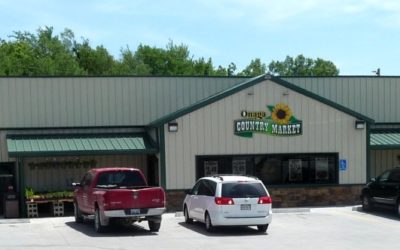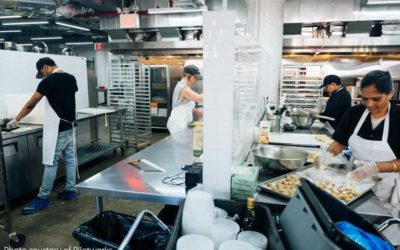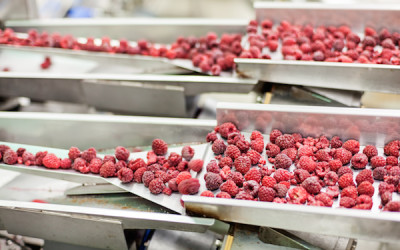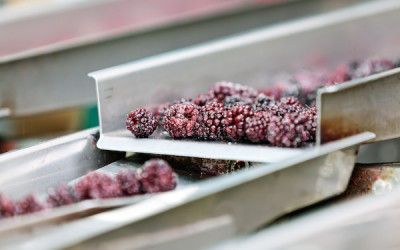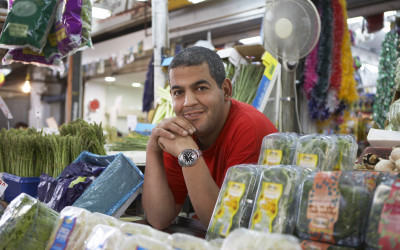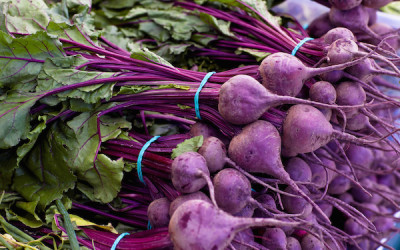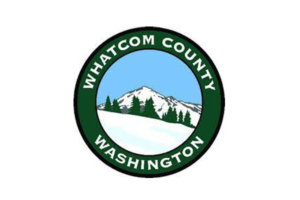
5 Fantastic Ideas for Building Resiliency in Small Town Grocery Stores from the Rural Grocery Summit
We became aware of the plight of rural grocery stores a few years ago. Through USDA funding we have begun to research if and how a rural grocery store can viably serve as a food hub to strengthen its bottom line. This blog post by Saloni – Rural Grocery Stores as Food...
Kitchen incubators: is there a recipe for success?
Ten years ago, the kitchen incubator was a novel concept. Since then, the food landscape has evolved pretty dramatically. We are now flooded with artisan products (or specialty, local, small batch – insert your favorite food movement here!) and have unparalleled...
Frozen Local is Heating Up: Is it Worth It? Part II
We’re reporting back with operator perspectives in hand…and the answer is (drumroll please): it depends. As you probably expected! Earlier this month, we had the pleasure of moderating an incredibly insightful panel discussion at the National Good Food Network 2016...
Frozen Local is Heating Up: Is it Worth It? Part I
More and more, food hubs are wondering if they should build frozen processing capabilities. At first review, it seems like a solution to so many challenges in the local food system. Growers struggle when their key crops are ready for sale at the same time as other...
Risky Business: Good Food in Small Stores
Access to healthy, fresh and affordable food is unfortunately not a given in all parts of the globe, nor in the U.S. Improving food access is a founding tenet of the good food movement, and today there are many national, regional and local organizations with missions...
The Role of Food Hubs in Food Access
In January Wholesome Wave hosted the Transforming Food Access Summit in Atlanta. We attended the conference to co-host a session with Farm Fresh Rhode Island, a food hub in Providence that is having tremendous impact on community health. Our panel explored the...
3 Trends Shaping 2016
As the year comes to a close, many of us are reflecting on the year behind and making plans for the year ahead. I always find it inspiring when the NVA team meets to talk about how we’re doing, what we’re learning and the trends we’re observing. We use these insights...
4 Ways Interviews Can Help Develop Regional Food Systems
The word interview typically brings to mind a discussion for the purposes of hiring, or a type of conversation that journalists have in order to write an article. Interviews are not often regarded as a tool for the development of business strategy. Yet the act of...
Food Hub Networks: the Local Food Movement’s Future?
One thing I love about working in local food, and with food hubs in particular, is how the space is ever evolving. Planning organizations and current or aspiring food hub operators are constantly evaluating the business model – identifying opportunities to better...
The Importance of Community
Two weeks ago the Good Food Business Accelerator kicked off its second year. The GFBA is a fellows program that assists Midwest farms and food entrepreneurs with mentoring, training, sales support and financing to launch and grow their businesses. I worked with...
9 Trends in Food Hub Planning
After two years working with incredible, diverse and passionate local project teams on dozens of food system assessments, I always get excited when we start a new project. We have no preconceived ideas about the local food landscape or the direction we think a food...
Local Food – A Solution for Vacant Buildings?
Traditionally, New Venture Advisors’ projects have been catalyzed by an individual or group passionate about strengthening their local food system. These community leaders often believe that market-based solutions might be the answer, and look to food hubs or...
Positioning Statements: How a Carrot is More Than a Carrot
Earlier this month I spent a week in New England conducting sales and marketing trainings for the Vermont Farm & Forest Viability Program and the Carrot Project. They invited educators to offer trainings on finance, marketing and management to individuals that...
Anatomy of a Positioning Statement
In an earlier blog post titled “Positioning statements: how a carrot is more than a carrot” I described how a business identifies itself to its customer vis-à-vis the competition through a positioning statement, and how a well-crafted positioning statement can help an...
Let’s Get Feasible: 6 Exercises for a Great Feasibility Study
The term “feasibility study” seems to elicit a wide range of reactions ranging from skepticism to exhaustion to excitement. Where along this spectrum someone falls can often depend on the structure and execution of a study, as well...
4 Keys to Persuasive Business Plans (Part 2)
As mentioned in Part 1 of this post, these four aspects of a business plan can be the most compelling if well researched and presented: Value Proposition: a strong problem/solution statement Addressable Market: a realistic estimate of the size of your market Sales...
4 Keys to Persuasive Business Plans (Part 1)
I was recently a panelist in a breakout session about financing food hubs. My segment was on the importance of business planning in effectively raising money. With only 15 minutes for prepared remarks, I wondered how to distill into a few key points all of the...
Don’t waste a perfectly good failure
I was having one of those memorable group dinners last weekend that jumps from one fun topic to another, and has us sharing and learning new things about ourselves. One question that popped up for all to reflect on was “what accomplishment are you most proud of in...
The One-page Annual Strategic Plan
It's December. Countless large organizations have been in the midst of planning meetings, data analysis, and presentations to boards. However, so many employees see annual planning as just a dog-and-pony show with little impact on their work the following year. At the...
Rural Grocery Stores as Food Hubs — 2 Birds, 1 Stone?
Here’s a question we are hearing more and more from client teams and community planning groups: can a food hub work in a small, rural community? One might expect the result of a feasibility study for a food hub in this context to be “no-go”. The low overall population...
It’s never too late (or too early) to write a business plan
We sometimes get calls from business leaders who are stuck. They lay out a number of issues hoping we can help them. This might be an owner of a food hub that has been in operation and growing rapidly for several years but is still not making profits, or an...

